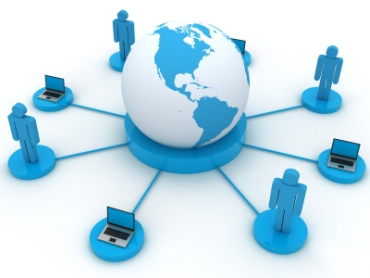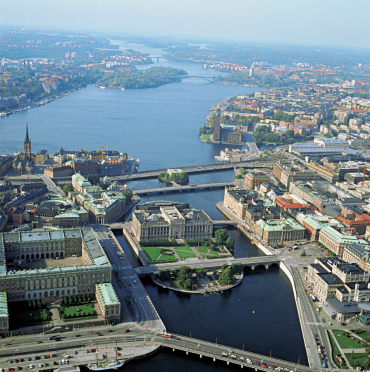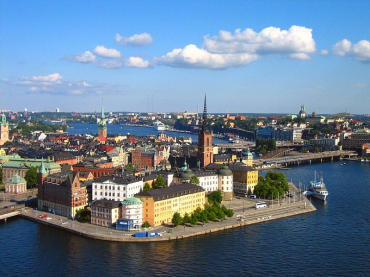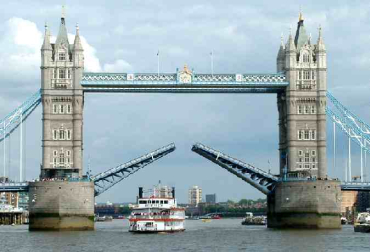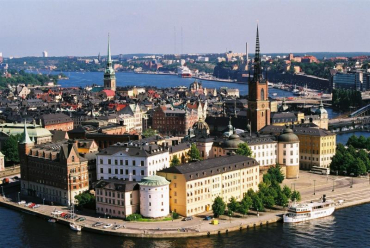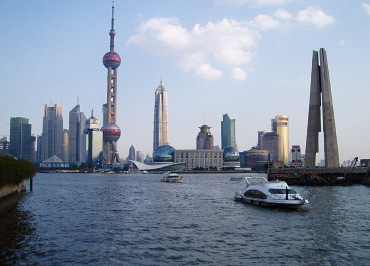 | « Back to article | Print this article |
How Internet is creating jobs worldwide
According to a report by McKinsey Global Institute, the Internet has a sweeping impact on growth, prosperity and has 'created 2.6 jobs for every job that it has destroyed'.
"The Internet is a contributor to net job creation," McKinsey Global Institute said in its report, titled, 'Internet matters: The Net's Sweeping Impact on Growth, Jobs and Prosperity'.
"While jobs have been destroyed by the emergence of Internet, many more have been created during the same period, including jobs directly linked to the Internet, such as software engineers and online marketers as well as more traditional jobs -- logistics to deliver online purchases," it added.
Click NEXT to read more...
How Internet is creating jobs worldwide
In the 13 countries that the survey covered, the Internet contributed an average 3.4 per cent to the GDP, more than agriculture, energy and other better established industries.
Around two billion people are now connected to the Internet and the number is growing by 200 million each year.
India and China are strengthening their position in the global Internet ecosystem rapidly and are showing growth rates of more than 20 per cent in terms of new connections.
Click NEXT to read more...
How Internet is creating jobs worldwide
Internet users worldwide: 2 billion.
Internet accounts for: 3.4 per cent of GDP in 13 countries.
Internet accounts for: 21 per cent of GDP growth in the last five years in mature countries.
Internet has created 2.6 jobs for every job lost.
75 per cent of Internet impact arises from traditional industries.
10 per cent increase in productivity for small and medium industries from Internet usage.
Small and medium industries heavily using web technology grow and export twice as much as others.
Click NEXT to read more...
How Internet is creating jobs worldwide
The United States leads the global Internet supply ecosystem. The United States captures more than 30 per cent of global Internet revenues and more than 40 per cent of net income.
It is the country with the most diverse structure within the global ecosystem among the 13 analyzed in this research, garnering relatively equal contributions from hardware, software and services and telecommunications.
Click NEXT to read more...
How Internet is creating jobs worldwide
These two countries have leveraged very strong Internet usage across the board to gain greater importance within the global Internet ecosystem.
This move is helped by the strength and strong performance of their telecom operators.
Click NEXT to read more...
How Internet is creating jobs worldwide
Both countries show growth rates of more than 20 per cent.
Click NEXT to read more...
How Internet is creating jobs worldwide
France, Canada, and Germany have strong Internet usage.
All three could leverage this usage to increase their presence in the global supply ecosystem.
Click NEXT to read more...
How Internet is creating jobs worldwide
Click NEXT to read more...
How Internet is creating jobs worldwide
Internet contribution to GDP in 13 countries, 2009
i) Private consumption: $736 billion
Share of total contribution: 53 per cent
Share of GDP: 1.8 per cent
ii) Private investment: $395 billion
Share of total contribution: 29 per cent
Share of GDP: 1.0 per cent
iii) Public expenditure: $209 billion
Share of total contribution: 15 per cent
Share of GDP: 0.5 per cent
iv) Trade balance: $36 billion
Share of total contribution: 3 per cent
Share of GDP: 0.1 per cent
v) Total contribution: $1,326 billlion
Share of total contribution: 100 per cent
Share of GDP: 3.4 per cent
Private consumption: This is the total consumption of services and good via Internet. Private consumption is primarily driven by online purchases of good and services. In the US, users made purchases worth $250 billion in 2009.
Private investment: Private-sector investment in Internet-related technologies accounts for 29 per cent of Internet's total GDP contribution.
Public expenditure: Investment made by government, such as software, hardware and telecoms.
Trade balance: Exports of goods, services and Internet equipment, plus B2B and B2B e-commerce.
Click NEXT to read more...
How Internet is creating jobs worldwide
Click NEXT to read more...
How Internet is creating jobs worldwide
Click NEXT to read more...
How Internet is creating jobs worldwide
Total: 5.4 per cent
Click NEXT to read more...
How Internet is creating jobs worldwide
Click NEXT to read more...
How Internet is creating jobs worldwide
Click NEXT to read more...
How Internet is creating jobs worldwide
Click NEXT to read more...
How Internet is creating jobs worldwide
Business environment: 76 points
The United States has historically produced and attracted a large quantity and quality of trained professionals, which is why it has an edge over others when it comes to human capital.
Access to appropriate funding, like loans and investments, helps the US in financial capital ranking.
Unlike many other countries, the US not only has an excellent Internet infrastructure, it also has a positive business environment.
Click NEXT to read more...
How Internet is creating jobs worldwide
Business environment: 92 points
Click NEXT to read more...
How Internet is creating jobs worldwide
Click NEXT to read more...
How Internet is creating jobs worldwide
Click NEXT to read more...
How Internet is creating jobs worldwide
Click NEXT to read more...

